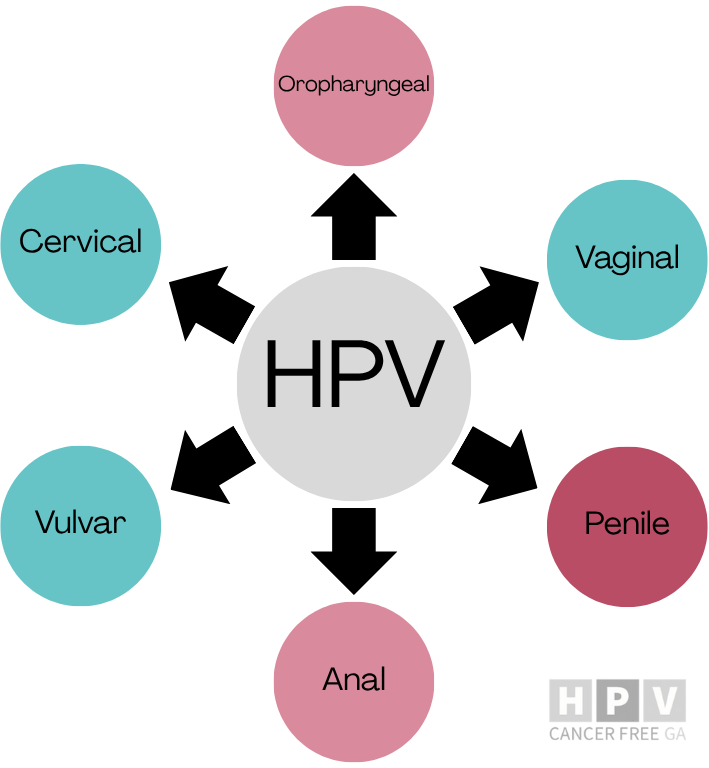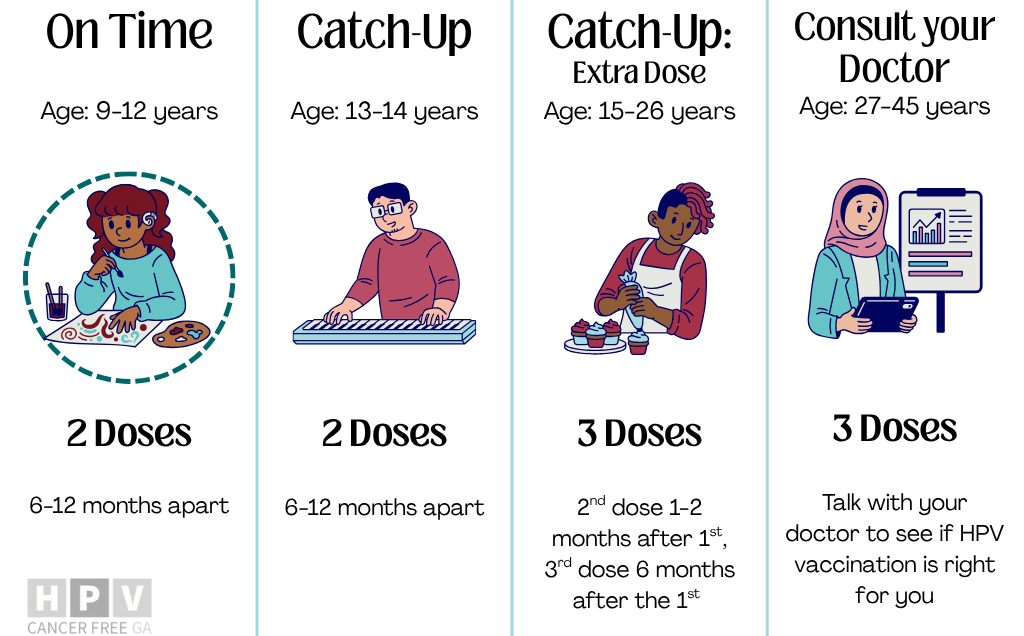HPV is extremely common and often goes unnoticed as most infections are asymptomatic. It spreads through close skin-to-skin contact, usually during sexual activity, and because it’s an epithelial virus, it can be transmitted without penetrative sex. Unlike some other sexually transmitted infections, individuals may not know they have HPV and may carry or transmit HPV without ever knowing they’re infected.
HPV-Associated Cancers
Human papillomavirus (HPV) is a common virus that consists of hundreds of different strains; some of which may cause cancer, pre-cancerous cells, or genital warts. HPV can cause six types of cancer: anal, cervical, oropharyngeal (throat, tongue, and tonsils), penile, vaginal, and vulvar cancer. Each year in the United States, over 47,900 new cancer cases occur in parts of the body where HPV is often found. Of these, approximately 37,800 cases are caused by HPV, according to the Centers for Disease Control and Prevention (CDC).

Long-term HPV infections are responsible for nearly 30,000 new cases of cancer in the US each year

While HPV is common and most people’s immune systems clear the infection on their own, there’s no way to know who will develop persistent infections that may lead to cancer. That’s where the HPV vaccine plays a crucial role - it provides safe, effective protection without relying on chance or individual immune response. HPV vaccination protects against the nine most common strains of the virus associated with these cancers, pre-cancerous cells, and genital warts. Although HPV-related cancers are serious, they are largely preventable. That’s why our mission is centered on increasing awareness, expanding access to prevention strategies like HPV vaccination, and eliminating HPV-related cancers across Georgia.
Vaccinate to prevent cancer!

Each year, nearly 14 million new HPV infections occur. These infections predominantly affect adolescents and young adults, both males and females, aged 15 to 24 years old. HPV vaccination is most effective when given before exposure to the virus, ideally in the preteen years. It’s routinely recommended for all children aged 11–12, and vaccination can begin as early as age 9.
HPV vaccination has been recommended in the U.S. since 2006 and is one of the most effective tools for cancer prevention. It is strongly recommended for all adolescents - girls and boys - at ages 9–12, with catch-up vaccination advised through age 26 for anyone not fully vaccinated.
For adults ages 27–45, vaccination may still offer benefits. The CDC’s Advisory Committee on Immunization Practices (ACIP) recommends making this decision in consultation with a healthcare provider, called shared clinical decision making.